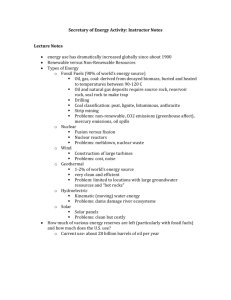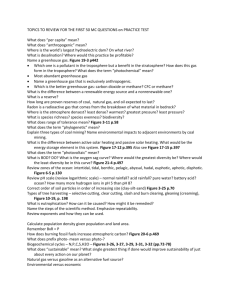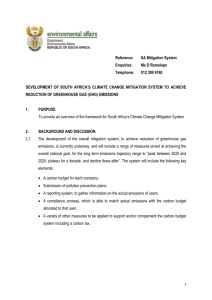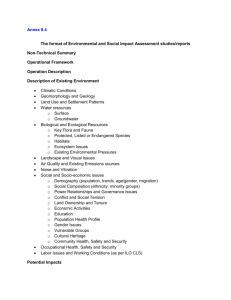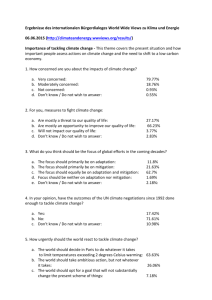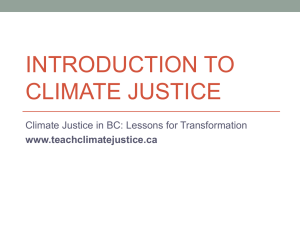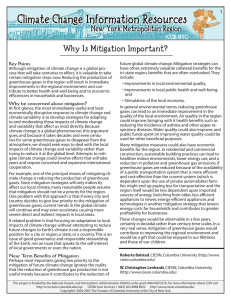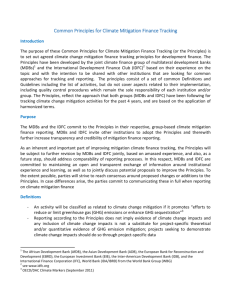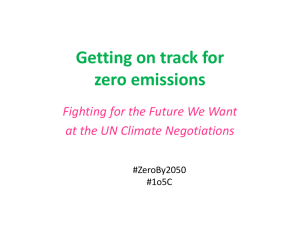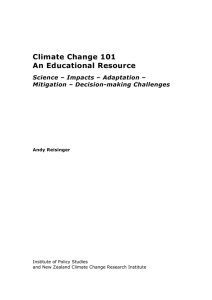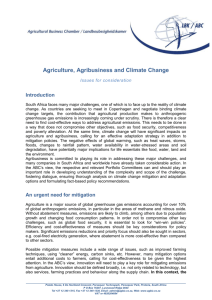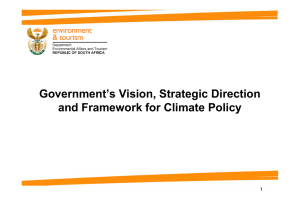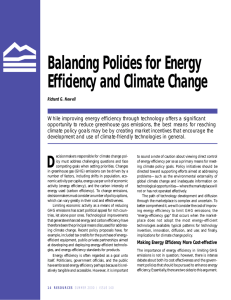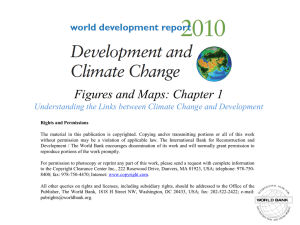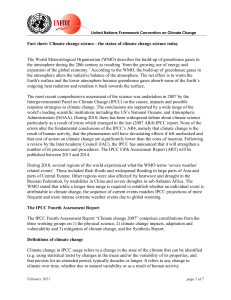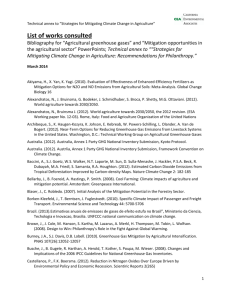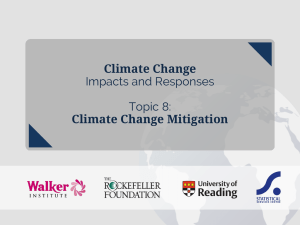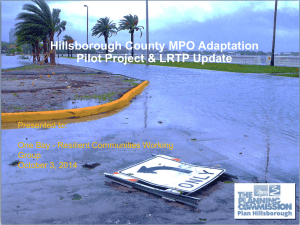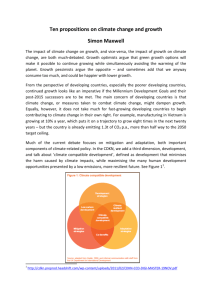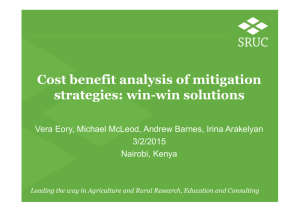Chairman`s Summary of the In-Session Workshop on Mitigation of
advertisement
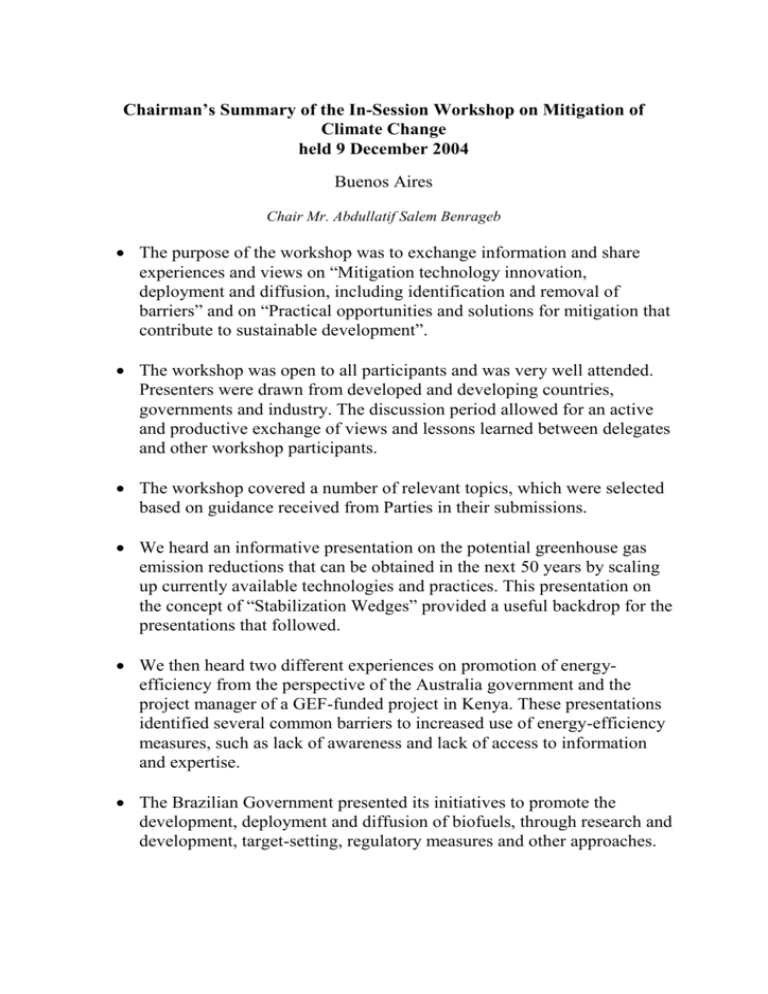
Chairman’s Summary of the In-Session Workshop on Mitigation of Climate Change held 9 December 2004 Buenos Aires Chair Mr. Abdullatif Salem Benrageb The purpose of the workshop was to exchange information and share experiences and views on “Mitigation technology innovation, deployment and diffusion, including identification and removal of barriers” and on “Practical opportunities and solutions for mitigation that contribute to sustainable development”. The workshop was open to all participants and was very well attended. Presenters were drawn from developed and developing countries, governments and industry. The discussion period allowed for an active and productive exchange of views and lessons learned between delegates and other workshop participants. The workshop covered a number of relevant topics, which were selected based on guidance received from Parties in their submissions. We heard an informative presentation on the potential greenhouse gas emission reductions that can be obtained in the next 50 years by scaling up currently available technologies and practices. This presentation on the concept of “Stabilization Wedges” provided a useful backdrop for the presentations that followed. We then heard two different experiences on promotion of energyefficiency from the perspective of the Australia government and the project manager of a GEF-funded project in Kenya. These presentations identified several common barriers to increased use of energy-efficiency measures, such as lack of awareness and lack of access to information and expertise. The Brazilian Government presented its initiatives to promote the development, deployment and diffusion of biofuels, through research and development, target-setting, regulatory measures and other approaches. We then heard the perspectives of the Coal Industry on the important role of coal in meeting current and future energy needs, and the prospects for making coal more environmentally and, in particular, climate-friendly. The Argentine Government discussed how opportunities for reducing greenhouse gas emissions in the waste sector can also yield important environmental and social benefits, particularly in urban areas. Finally, we heard from a representative of the US government on its programmes to stimulate the development, deployment and dissemination of hydrogen technology for energy. I would like to offer some observations from the presentations and discussions that followed: There are many currently available technologies and practices in both developed and developing countries, which have the potential to reduce greenhouse gas emissions and contribute to sustainable development. The challenge is to overcome the barriers to broader application of these technologies and practices. Broad engagement of actors was cited as important in this regard. It is also clear that fossil fuels, in general, will continue to play a role in meeting energy needs, both globally and in many countries and regions, for the foreseeable future. For this reason, advanced fossil fuel technologies, and other technologies to reduce or capture carbon emissions from fossil fuels will be an important component of climate mitigation strategies over the next half century. There is no single solution to mitigating climate change. A portfolio of different practices and technologies will be needed. The mix of approaches that works best for one country or region, may not be best for another. Participants agreed on the need to continue to learn from each other’s experiences in mitigating climate change, particularly with respect to energy-efficiency and to technology development, deployment and diffusion. An appropriate forum for such exchanges needs to be identified. Participants also expressed interest in exploring factors and policies, including cooperative and multilateral efforts, that promote these goals, and ensure that institutions and infrastructure do not ‘lock-in’ technologies which are not climate-friendly. Technology change needs to be stimulated through effective government policies and target setting. I would like to thank the secretariat for its support in making these insession workshops again a worthwhile and successful experience.
